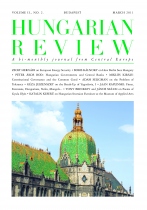Author(s): Ioana-Julieta Josan / Language(s): English
Issue: 2/2012
Once with the development of the human capital theory, the education received an economic
value, which is a quality variable of human resources and the main determinant of economic growth.
The famed economists have shown that the remarkable economic effects of the investments in
education influence the chances of acquiring a job and earnings, demonstrating how the theory
justifies such an investment. Human capital approach allows also estimating the costs of education in
schools and higher education, as well as the profits that comes out of it. Thus, the human capital
theory is primarily focused on the demand for education. Moreover, the objective function of the
state, in terms of education, contains itself two contradictory arguments: the state, theoretically, is a
representative and guarantor of the collective good and its organizer; the state will seek to maximize
individual education on the one hand and on the other hand will search for the optimization of the
relationship between professional training and formal education. Also, in the context of recent years,
the budgetary constraints are raising the problem of optimal allocation of the resources, as well as
the funding of the performance of the educational services. The particularities, in terms of flexibility
and cumulative distribution of the investment levels in the human factors, are translated into a
practical action in the sense that global competition, from which Romania cannot decouple. In the
long run, there are winning and resisting only those with academic flexible formation and the
intelligent persons. Considering the above arguments, the purpose of this paper is to analyze the
main characteristics of funding mechanisms for education systems, the volume of spending on
education and ways of managing the resources allocated to the education. The cost allocation for
education in Romania is investigated in terms of government policies, but also in terms of human
capital theory. Also, to answer to the question how Romania had aligned to the modern trends in
terms of allocation of the resources more and more important for human capital formation, this
paper attempts to estimate the economic effort claimed by the financing of the education system.
More...


